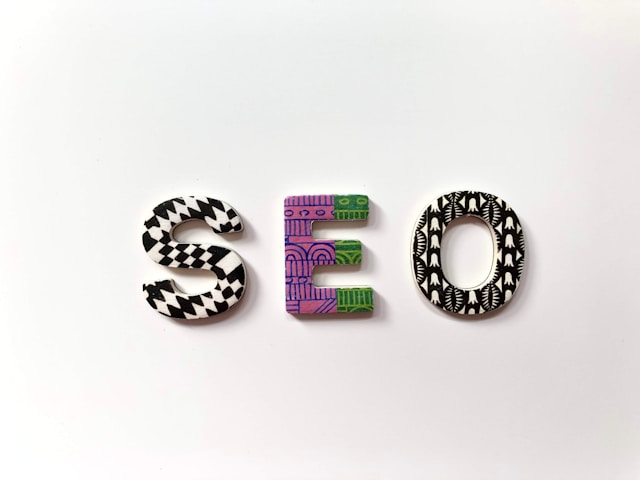
Why SEO is a Must for Modern Marketing
Are you wondering why everyone talks about SEO so much?
Or maybe you’ve heard about it, but you’re not sure how it helps with marketing. That’s fine. SEO might sound technical at first, but it’s one of the simplest and most helpful tools in digital marketing today.
Let’s break it down in easy words and see how SEO is helping businesses grow online—without making anything sound too complex or technical.
What is SEO and Why It Matters Today

SEO stands for Search Engine Optimization. In simple words, it’s a way to help your website show up on Google when people search for things related to your business. When your site ranks higher, more people can find you. And more people mean more chances to grow your business.
Think of it like this—when you look for something online, you mostly click on the links that show up on the first page. That’s what SEO or an SEO consultant helps with. It gets your website on that first page so that people can see what you offer.
And it’s not just for big businesses. Even small shops, home-based services, or personal blogs can benefit from good SEO.
Why SEO is Always a Smart Idea for Marketing
Using SEO in your marketing plan is one of the smartest things to do these days. It helps bring steady traffic to your website without needing to run ads every day. Plus, it builds trust. People usually trust websites that show up on the top of search results.
Also, the good thing is that SEO is cost-effective in the long run. Once your pages start ranking well, you can keep getting visitors without spending too much on paid promotions.
Even websites that talk about gaming or online fun use SEO to get more attention. For example, if someone is looking for a non gamstop casino, they might type that in Google. Sites that have used SEO well for that keyword will show up first. That’s how SEO helps connect users with the right websites.
How SEO Helps Businesses Grow Organically

It’s quite simple. When your website ranks well on search engines, more people visit it. And these are not just random people—these are folks who are already searching for what you offer.
So, you’re not just showing ads to anyone, you’re reaching the right people at the right time.
Now let’s talk about how SEO helps in marketing, step by step.
SEO Builds Long-Term Online Visibility
Before we go into the specific steps or strategies, let’s understand one thing: SEO is not a one-time effort. It’s a long-term method that brings continuous results. It works quietly in the background, improving your site’s value over time.
When your website is properly optimized, it keeps attracting new visitors regularly. This helps create a solid online identity for your brand.
Different Ways SEO Helps in Marketing

There are many simple ways SEO supports your marketing plans. You don’t need to be a tech expert to get started. Here are a few key types that matter.
1. On-Page SEO
This part includes everything that you do on your website. It includes writing good content, using simple keywords, and arranging your web pages neatly.
If your website has helpful and clear information, Google will understand it better and show it to more people.
For example, a bakery might write blog posts about cake recipes or birthday ideas. That content helps it get noticed online when people search for similar things.
2. Off-Page SEO
This is what happens outside your website but it still helps it grow. One main thing here is backlinks. When other websites link to your pages, it tells Google that your site is trustworthy.
So, when your site gets mentioned or linked from another blog, review site, or article, it helps improve your ranking.
3. Technical SEO
This part makes sure that your website runs smoothly. It’s all about speed, mobile-friendliness, and making sure your website loads properly.
Even if your site has the best content, if it’s slow or doesn’t work well on mobile, people may leave quickly. Technical SEO keeps everything running in a proper way.
4. Local SEO
If you run a shop, restaurant, or service business in your area, local SEO can help a lot. It makes your business appear in local searches like “salon near me” or “best paratha place in Delhi.”
By updating your Google My Business profile and getting reviews, you can make sure local customers find you easily.
SEO Makes Marketing More Targeted
Another benefit of SEO is that it helps you reach people who are already interested. For example, if someone types “home yoga classes near me,” and your website shows up, it means you’re exactly what they were looking for.
This kind of targeted reach is way more helpful than randomly posting ads. Plus, it feels more natural for people to click on something they were already searching for.
SEO brings organic attention, which usually feels more genuine and trusted.
SEO Works Well with Other Marketing Methods

The beauty of SEO is that it doesn’t work alone, it can support other marketing strategies too. Whether you’re using email marketing, social media, or paid ads, a strong SEO base improves everything.
For example, if you’re sharing a blog post on Instagram or sending it through email, that same blog can also rank on Google through SEO. So, it gives more value to every piece of content you create.
SEO Helps You Understand Your Audience
When you track your website’s SEO performance, you also get to know your audience better. Tools like Google Search Console or basic website trackers show you what people are searching for, how long they stay on your site, and what pages they like.
This data helps you make smarter decisions about what kind of content to make, what products people like, and even which cities are showing more interest in your business.
In short, SEO gives you useful insights that help you plan better marketing ideas.
SEO Makes Your Brand Stronger
When people keep seeing your website on the first page of Google, it naturally builds trust. They begin to see your brand as a reliable source. And when they see you often, they remember your name the next time they need something.
Over time, SEO helps build strong brand recall. That’s like free branding happening all the time.
SEO is Suitable for All Kinds of Businesses

It doesn’t matter if you sell clothes, run a tuition center, or write blogs—SEO can help every type of business. It adjusts to your needs.
Even new businesses or individuals can use SEO to start growing without spending too much money on paid ads. All it takes is some time, patience, and simple planning.
You don’t need to do everything at once. Even adding good content to your site step-by-step can make a positive difference.
SEO is Always Improving with Time
Another nice thing about SEO is that it keeps improving with small efforts. You can update your content, add new pages, and continue getting results month after month.
Unlike paid ads, which stop when your budget ends, SEO keeps helping as long as your website stays active and useful.
Final Thoughts
So now you know why SEO is a must for modern marketing. It’s friendly, cost-saving, and works quietly to grow your online reach. It helps you reach the right people at the right time without making things complicated.
The best part is—you don’t need to be an expert to get started. Just write, focus on your readers, and keep your website active with simple updates.
If you want your business to grow online and stay ahead without too much spending, SEO is a reliable way to do it. It’s not about doing something fancy; it’s just about making sure your online place is easy to find and easy to trust. And once you get started, you’ll see how naturally it becomes a helpful part of your marketing style.
Author Profile
- As the Chief of Marketing at the digital marketing agency ClickDo Ltd I blog regularly about technology, education, lifestyle, business and many more topics.
Latest entries
 Digital MarketingApril 17, 2025From Healthcare to Hospitality: How Businesses in these Sectors can Thrive with Tailored SEO Strategies
Digital MarketingApril 17, 2025From Healthcare to Hospitality: How Businesses in these Sectors can Thrive with Tailored SEO Strategies Digital MarketingApril 8, 2025How AI Is Changing the Future of SEO: Top 9 Tactics for 2025
Digital MarketingApril 8, 2025How AI Is Changing the Future of SEO: Top 9 Tactics for 2025  Digital MarketingMarch 25, 2025Why SEO is a Must for Modern Marketing
Digital MarketingMarch 25, 2025Why SEO is a Must for Modern Marketing Digital MarketingMarch 10, 2025Beyond SEO: How Search Data Powers Market Research and Trend Analysis
Digital MarketingMarch 10, 2025Beyond SEO: How Search Data Powers Market Research and Trend Analysis

